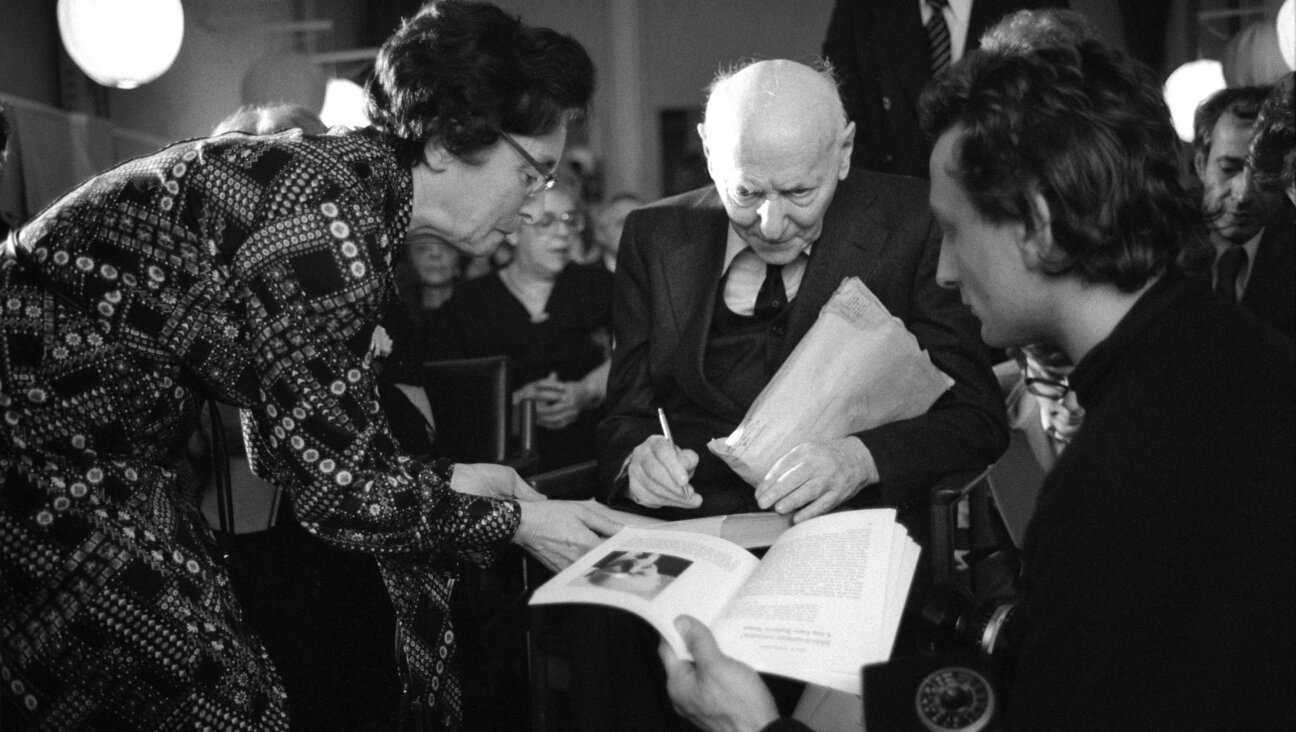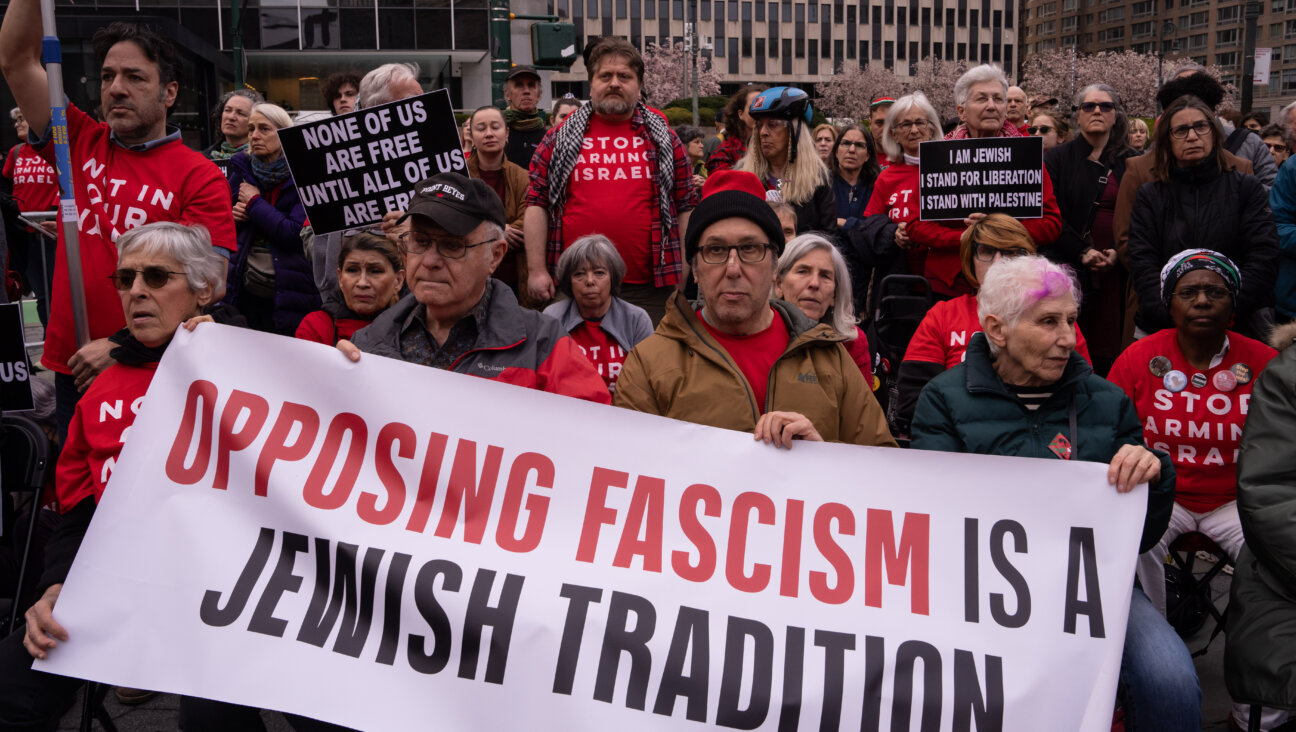Heed the Call
Rabbi Yitzhak Nates and four other religious activists walked into a Philadelphia gun shop in January, and told the owner they wouldn’t leave until he signed a code of conduct intended to reduce “straw purchases” — the sale of numerous firearms to a single buyer, an indirect way too many guns get into the hands of violent criminals.
The owner of Colosimo’s Gun Center refused, police were called, Nates and the others were arrested and spent the next 12 hours in jail. Eventually, the charges against the protesters were dropped. Even more amazingly, the act of civil disobedience drew a sweet reward.
Just after the U.S. Attorney’s office announced in late September that it was lodging its own charges against the gun shop owner, he said he would close his store. Heeding God’s Call, the clergy-led activist group, rejoiced.
By itself, the hard task of nonviolent protest cannot stop the unconscionable epidemic of gun violence across America, but it’s an excellent place to start. Much of the best work on this issue happens at the local level, where the iron grip of the gun lobby is more easily challenged by the deep passions of those who have seen the toll that our national love affair with guns has taken, especially on young people.
Some of the leaders of Heeding God’s Call live in the neighborhoods where guns rule, and gun shops too often are not held accountable for their roles in enabling this alternative, and terrifying, form of governance. The federal charges against Colosimo’s, for example, included several sales of more than 10 firearms to single buyers. The Brady Center to Prevent Gun Violence considered Colosimo’s to be America’s fifth-worst gun dealer.
But some of the clergy-activists — Nates, for example — live in the quieter suburbs where violence is not routine. That’s where many Jews live, too. Our challenge is to make common cause with those less fortunate, in the same way that our concern for other issues of social justice often requires more empathy than direct identification.
The civil action against the Colosimo’s of the country must go hand-in-hand with relentless attempts to change the laws that allow these enterprises to flourish. To its credit, Philadelphia’s Jewish Community Relations Council worked with an interfaith coalition for passage of a state bill limiting the number of handguns that could be sold in a given month. But those faith leaders were no match for Pennsylvania’s powerful gun lobby, and the bill went down to defeat.
So now the JCRC and others are encouraging local communities to enact their own laws, and that is happening across Pennsylvania, from Allentown to Erie. While many national Jewish organizations are in the thick of lobbying for necessary reforms in Congress, the incremental steps taken on a local level have a different sort of power.
“We believe that until those in suburban areas recognize the urgency of this issue, which knows no racial, ethnic or geographic boundaries, it will be viewed narrowly as a ‘big city’ problem and ignored in the state legislature,” said Marc Zucker, the JCRC’s chair.
Nates hopes that his group’s civil disobedience — “very specific, very reasonable” — will catch on, as it should. “We’re trying to reduce guns going to the wrong people,” he said. “It’s a step in the direction of peace.”
The Forward is free to read, but it isn’t free to produce

I hope you appreciated this article. Before you go, I’d like to ask you to please support the Forward.
Now more than ever, American Jews need independent news they can trust, with reporting driven by truth, not ideology. We serve you, not any ideological agenda.
At a time when other newsrooms are closing or cutting back, the Forward has removed its paywall and invested additional resources to report on the ground from Israel and around the U.S. on the impact of the war, rising antisemitism and polarized discourse.
This is a great time to support independent Jewish journalism you rely on. Make a gift today!
— Rachel Fishman Feddersen, Publisher and CEO
Support our mission to tell the Jewish story fully and fairly.
Most Popular
- 1

Culture Trump wants to honor Hannah Arendt in a ‘Garden of American Heroes.’ Is this a joke?
- 2

Opinion The dangerous Nazi legend behind Trump’s ruthless grab for power
- 3

Fast Forward The invitation said, ‘No Jews.’ The response from campus officials, at least, was real.
- 4

Opinion A Holocaust perpetrator was just celebrated on US soil. I think I know why no one objected.
In Case You Missed It
-

Film & TV In ‘The Rehearsal,’ Nathan Fielder fights the removal of his Holocaust fashion episode
-

Fast Forward AJC, USC Shoah Foundation announce partnership to document antisemitism since World War II
-

Yiddish יצחק באַשעװיסעס מיינונגען וועגן די אַמעריקאַנער ייִדןIsaac Bashevis’ opinion of American Jews
אין זײַנע „פֿאָרווערטס“־אַרטיקלען האָט ער קריטיקירט זייער צוגאַנג צום חורבן און צו ייִדישקײט.
-

Culture In a Haredi Jerusalem neighborhood, doctors’ visits are free, but the wait may cost you
-
Shop the Forward Store
100% of profits support our journalism
Republish This Story
Please read before republishing
We’re happy to make this story available to republish for free, unless it originated with JTA, Haaretz or another publication (as indicated on the article) and as long as you follow our guidelines.
You must comply with the following:
- Credit the Forward
- Retain our pixel
- Preserve our canonical link in Google search
- Add a noindex tag in Google search
See our full guidelines for more information, and this guide for detail about canonical URLs.
To republish, copy the HTML by clicking on the yellow button to the right; it includes our tracking pixel, all paragraph styles and hyperlinks, the author byline and credit to the Forward. It does not include images; to avoid copyright violations, you must add them manually, following our guidelines. Please email us at [email protected], subject line “republish,” with any questions or to let us know what stories you’re picking up.














